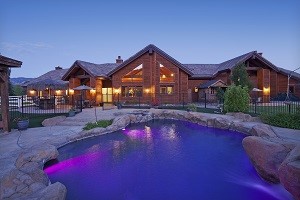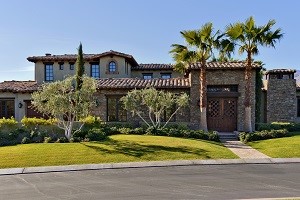The basement does not exactly have a good reputation in feng shui.
In fact, if you have a choice, probably 10 out of 10 feng shui masters would encourage you not to use it as a basement bedroom. And it doesn’t matter whether you live in Arizona or New York.
But many people live in basement apartments. Some homeowners convert it into an income suite. Then there are those who use it as a home office.

So how do you ensure that you eliminate or minimize the negative effects of basement feng shui.
3 factors of bad basement feng shui
The basis for the basement to have earned such a notoriously adverse feng shui reputation comes down to 3 factors that are unique (in most parts) to underground dwellings.
Air circulation
You only need to walk into a basement to realize they are usually stuffy enough to be hazardous to those with serious asthma conditions.
The odd thing is that even if they have windows to rise above ground level to supposedly allow air from the surrounding to enter, it is still going to be stuffy.
Basements without such problems are usually due to the installation of ventilation systems that keeps the air circulated.
This inherited problem of basements makes it extremely difficult for Qi to enter the premises, let alone accumulate.
So even if you can find a wealth corner in a space, there is little wealth energy for the corner to hold!
The only practical solution to this issue is the installation of ventilation systems.
Natural light
Any living space would benefit from the yang energy that natural light brings. And this can often be severely lacking in basements.
Even when windows are constructed to allow air into the basement, they are often barricaded with walls and ledges to prevent rainwater from flowing in.
This in inadvertently prevents sunlight from shining into the space.
It is also one big reasons why basements are widely agreed to be yin spaces rather than yang.
The only real alternative to this issue is with sufficient lighting fixtures.
Moisture
Technology and improvements in building methods have made moisture problems much more manageable in modern homes.
But this eternal war between water and basements don’t seem like finding a truce anytime soon.
Moisture don’t just pose problems to building foundations, but also the health aspect of people living in them as well.
Humidity also promote the growth of mold. This can be a big problem for unfinished basements.
There are some ways that can help homeowners to effectively manage this problem. It’s best to speak to a local contractor if you want to learn more.
And it would almost certainly include the use of dehumidifiers.
Basement feng shui considerations
As mentioned earlier, living in the basement is usually not recommended when it comes to feng shui.
But sometimes, it’s not a choice that people can decide on.
The solutions for the 3 main problems are listed above. And there are some more issues that you should think about when considering the basement’s feng shui.
If a staircase leads right into the basement with the absence of doors, then the bottom is the staircase would act as the “main door” into the space. This would then serve as the main entry point of Chi into the premises.
So when designing furniture layout to control the flow of chi, the main source of chi must be taken from the bottom of the stairs.
It would also not be ideal if the bed or sleeping area of a basement resident is directly under a toilet or kitchen stove.
The presence of plants can help to refresh and purify the air to some extent.
If you place them here, then remember to keep the light on for as much as possible since failing to do so would mean that they would be competing for oxygen with you.
The piping or drainage system of the house can run along the foundation walls (or just outside them) resulting in the basement being engulfed by water flows.
If this is the case, then do put some thought into water theories as well. But it might not be within your power to do anything about them.
Finally, if you are just want to know what is within you power, then keep the 3 main points in mind.
And they are to keep air circulated, install enough lighting fixtures, and keep moisture at bay.















